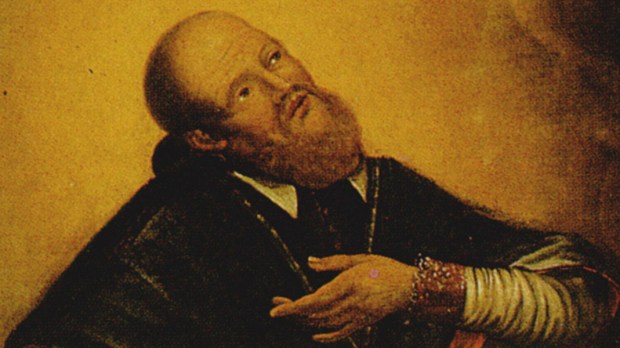Humility is a tricky virtue, as we often think it means having a negative view of yourself. We imagine the truly humble person is the one who sheepishly hides in the back of the room, hoping that no one notices them.
How far from the truth that is!
The most humble person to have walked this earth was Jesus!Far from shrinking away from responsibilities, he stood out in a crowd and led a bold mission of evangelization. At the same time, Jesus also knelt down to wash the feet of his disciples, even when they openly resisted his actions. Jesus’ version of humility is something we don’t often think about.
St. Francis de Sales reflects on this form of humility in his Introduction to the Devout Life. He directed the reader to reflect on the many gifts God has given to us and how true humility is the proper use of those gifts for God’s glory.
There are some persons who dare not or will not think about the graces with which God has endowed them, fearing lest they should become self-complacent and vain-glorious; but they are quite wrong…nothing so tends to humble us before the Mercy of God as the multitude of His gifts to us; just as nothing so tends to humble us before His Justice as the multitude of our misdeeds.
Humility recognizes the action of God in our lives and how he is in control. We are his instruments and if he wants us to stand in front of a room to proclaim the Gospel, we shouldn’t let our pride get in the way. In those instances, we need to let God work through us, just as God worked through Moses.
Moses thought he wasn’t all that great and couldn’t fulfill God’s will. However, God proved him wrong, and after Moses let go of his pride, he was able to lead an entire nation to the Promised Land.
De Sales continues his exhortation, summarizing this spiritual truth.
We meet people who tell us that they leave mental prayer to those who are more perfect, not feeling themselves worthy of it; that they dare not communicate frequently, because they do not feel fit to do so; that they fear to bring discredit on religion if they profess it, through their weakness and frailty; while others decline to use their talents in the service of God and their neighbor, because, forsooth, they know their weakness, and are afraid of becoming proud if they do any good thing,–lest while helping others they might destroy themselves. But all this is unreal, and not merely a spurious but a vicious humility, which tacitly and secretly condemns God’s gifts, and makes a pretext of lowliness while really exalting self-love, self-sufficiency, indolence, and evil tempers.
Once we recognize God’s power within us, and rely entirely on God for everything we do, our courage will grow and our self-confidence will be elevated.
The proud man who trusts in himself may well undertake nothing, but the humble man is all the braver that he knows his own helplessness, and his courage waxes in proportion to his low opinion of himself, because all his trust is in God, Who delights to show forth His Power in our weakness, His Mercy in our misery.
There is a great freedom that is unlocked when we recognize our own weaknesses and understand the gifts God has given us. We know that any good we do is due to God alone and that we are mere instruments in his hand. Our self-confidence in the end is more properly understood “God-confidence,” humbling ourselves before the Creator of this world.

Read more:
St. Francis de Sales on how gratitude can lead to humility

Read more:
11 Tips for growing in humility

